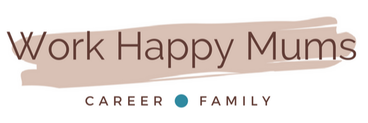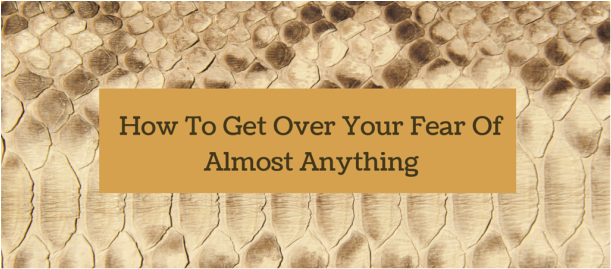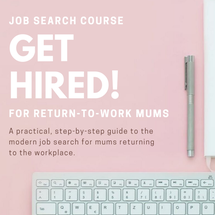|
Like you, I fear a few things. I fear being a 39-year-old stay-at-home dad while my buddies talk about stock options, mortgages and pension plans. I fear returning to an office job because being a stay-at-home dad has been such great experience that I think I’d just stare at the walls and miss my kids. I fear the place we’ll be posted next will be a war-torn hellhole and my days will be divided into making dinners and digging bomb shelters. I fear I’ll never write that book. I fear it’ll suck if I do. I fear environmental collapse, the reduction of the honey bee population, that my ball team will never win, and that I’m going to suffer some rare brain disease and end up chasing my neighbour’s cat around the yard thinking it’s Winston Churchill. And that’s just Monday. I try to keep perspective. I recognize fear is a gift of evolution; without it we wouldn’t have gotten much farther than “I wonder why that big striped cat with sharp teeth is licking its lips and staring at us?”
Fear also helps us avoid doing stupid things such as jumping off cliffs or expecting to pick packages at the Zollamt without suffering a Kafkaesque nightmare. Fear helps us survive. But what about when it paralyzes us, when—wait for the cliché—fear holds us back? I’m in the business of helping people overcome fear in one particular area—those who fear giving speeches—and I find there are three actions we can take that will not only help deal with public speaking fear, but fear in all aspects of life. First, we need to ditch the concept of fear “holding us back.” I despise the term not only because it’s a cliché, but because it abdicates responsibility. Fear isn’t holding us back: we’re holding ourselves back and fear is our excuse to do nothing. We may have good reasons for avoiding the things we fear—more on that later. If we really want to overcome it however, we have to realize that most of the time it’s usually nothing more than a straw man, something we’ve constructed as an avoidance mechanism. When we finally take it on, the results can be incredible. Two examples from my own life. I was a shy kid. Real shy. I had problems saying hello to people. In the fourth grade we were given that dreaded assignment: give a speech in front of the class. Fear? Oh yes. I thought about moving to Zimbabwe. I thought about stabbing myself in the leg. That ended when I realized my parents would figure it out (a fear worse than public speaking). So I gave the speech. And I did well. Actually, I did great. I won one competition then another. Emboldened, I gave more speeches. I went on to become a journalist, a DJ, a communications advisor, speechwriter and now I’m a professional speech coach. Glad I didn’t stab myself in the leg or who knows what I would have become? (Best case scenario? A butcher). Second example. A few years back I had a great job as a speechwriter for Canada’s Minister of Transport. Nice profile. Good money. Not only that, they let me telework from Berlin. Obviously I needed to ditch that job! There was more to it: I wanted to start my own part-time speech business and spend more time with our first daughter. I was terrified. My friends thought I was insane. Then one day I set aside the horrible self-doubt and thought: “what do I see myself doing in five years?” When I got honest, I realized it wasn’t writing another speech about bridges for the Minister of Transport. Notice written, notice delivered, happy ever after awaited. Right. Make no mistake, it hasn’t been easy, but I can tell you that none of my original fears came to fruition. They never do. They were simply replaced by a thousand OTHER fears I didn’t even know I’d have. See, that’s the thing: fear will never go away. It’s always going to be there staring us down. Once we get into the habit of abdicating responsibility by allowing it to “hold us back” it’ll be tough to break. Start challenging that concept and we begin to gain confidence for the next “impossible” task. The second action we can take is to evaluate our fear. In other words, is the fear we’re feeling about any given situation realistic? Again, fear exists for a reason. Why do we fear running a marathon after a quadruple bypass? Well, it would kill us. Why don’t we pull on Superman’s cape? You get the picture. I blame the inspirational poster industry. Don’t you hate those damn things? They all have the same empty “if you dream it, you can do it” schmaltz. Don’t get me wrong, there’s nothing wrong with setting incredible goals to achieve incredible results, but the next time somebody tells you to follow your dreams, tell them you’ve always dreamt of being their dentist. Be daring, be bold, but understand that there are other challenges in your life that may deserve your attention. Recognize the difference between “nearly impossible” and “impossible.” If you fear getting old and your dream is to become 18 and you’re now 39, that challenge would fit under the “impossible” category. Just trust me. The third action we can take to overcome fear comes from that icon of inspiration himself: Tony Robbins. He says fear is simply a message from ourselves to “get prepared.” Being prepared is the single most important thing we can do to overcome our fear of almost anything. I love this concept because I’ve seen it, lived it, and taught it. If you believe I simply quit my speechwriting job one day and decided to go solo on a whim, think again. My “moment of clarity” was preceded by rigorous planning, long lists of pros and cons, anguished discussions with my wife. In other words, plenty of prep work. People don’t like to hear this. The moment-of-clarity movie version is much tidier. Preparation isn’t easy. It doesn’t come in a bottle, there is no top-ten list on Twitter that will do it for you. It just hard work and lots of it. In my public speaking workshops—I’ve got one coming up in January—I always get a few people who want to come in, hear a few minutes of talk and be “cured”. They have no interest in changing their mindsets or developing a plan of action that will bring about real, long-lasting change. The real risk is that they then go out and give a speech, still nervous, and they make a mess of it. They think to themselves “well, I knew I couldn’t do it.” What do you think will happen the next time they face a fear of something? They back down. These things snowball. It doesn’t have to be this way. Be bold, be brave. If you want to get over your fear of anything, understand that it isn’t going to change and it isn’t going to move for you; you’ll simply have to go through it. Do it by defining what it is, understanding if it’s realistic and then develop a plan of action to attack it. In the meantime, I’ll be busy digging my bomb shelter.
0 Comments
Leave a Reply. |
Here on the blog we offer insights and tips that will empower you to create a career and life that works for you wherever you are in your parenting journey.
Categories
|
Work Happy Mums: For women whose career and family counts.
|
Member of:
|
Contact me, I'd love to hear from you!
|
Subscribe to my newsletter
|
Work Happy Mums operates under the Career Development Institute Code of Ethics.



